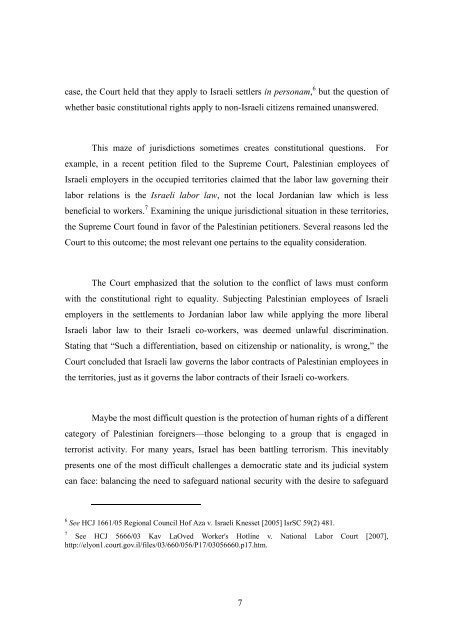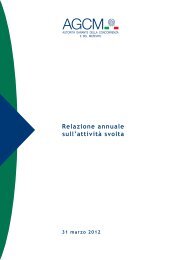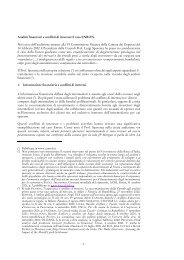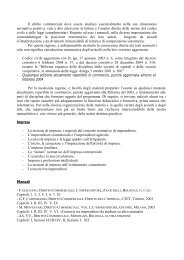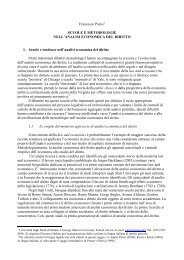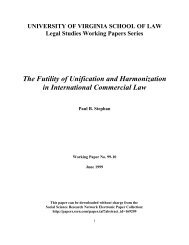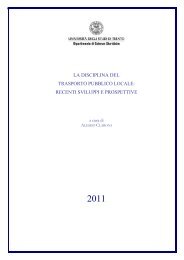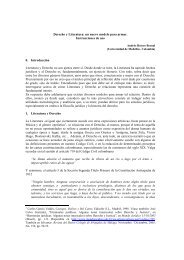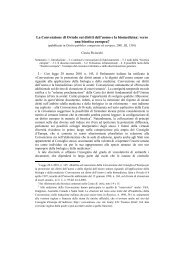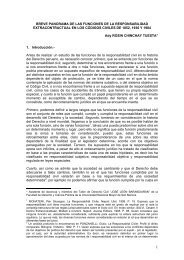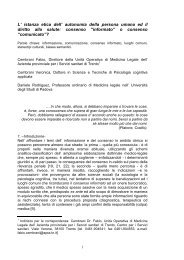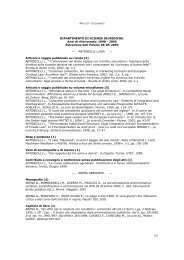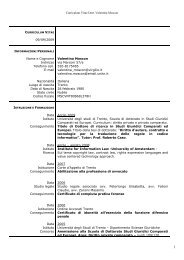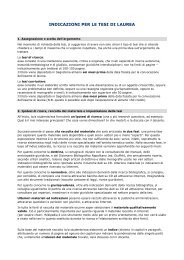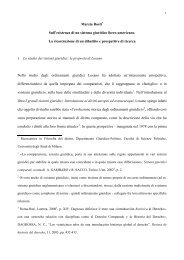Israel , Guy Shani, The Constitutional Rights of Foreigners in Israel
Israel , Guy Shani, The Constitutional Rights of Foreigners in Israel
Israel , Guy Shani, The Constitutional Rights of Foreigners in Israel
You also want an ePaper? Increase the reach of your titles
YUMPU automatically turns print PDFs into web optimized ePapers that Google loves.
case, the Court held that they apply to <strong>Israel</strong>i settlers <strong>in</strong> personam, 6 but the question <strong>of</strong><br />
whether basic constitutional rights apply to non-<strong>Israel</strong>i citizens rema<strong>in</strong>ed unanswered.<br />
This maze <strong>of</strong> jurisdictions sometimes creates constitutional questions. For<br />
example, <strong>in</strong> a recent petition filed to the Supreme Court, Palest<strong>in</strong>ian employees <strong>of</strong><br />
<strong>Israel</strong>i employers <strong>in</strong> the occupied territories claimed that the labor law govern<strong>in</strong>g their<br />
labor relations is the <strong>Israel</strong>i labor law, not the local Jordanian law which is less<br />
beneficial to workers. 7 Exam<strong>in</strong><strong>in</strong>g the unique jurisdictional situation <strong>in</strong> these territories,<br />
the Supreme Court found <strong>in</strong> favor <strong>of</strong> the Palest<strong>in</strong>ian petitioners. Several reasons led the<br />
Court to this outcome; the most relevant one perta<strong>in</strong>s to the equality consideration.<br />
<strong>The</strong> Court emphasized that the solution to the conflict <strong>of</strong> laws must conform<br />
with the constitutional right to equality. Subject<strong>in</strong>g Palest<strong>in</strong>ian employees <strong>of</strong> <strong>Israel</strong>i<br />
employers <strong>in</strong> the settlements to Jordanian labor law while apply<strong>in</strong>g the more liberal<br />
<strong>Israel</strong>i labor law to their <strong>Israel</strong>i co-workers, was deemed unlawful discrim<strong>in</strong>ation.<br />
Stat<strong>in</strong>g that “Such a differentiation, based on citizenship or nationality, is wrong,” the<br />
Court concluded that <strong>Israel</strong>i law governs the labor contracts <strong>of</strong> Palest<strong>in</strong>ian employees <strong>in</strong><br />
the territories, just as it governs the labor contracts <strong>of</strong> their <strong>Israel</strong>i co-workers.<br />
Maybe the most difficult question is the protection <strong>of</strong> human rights <strong>of</strong> a different<br />
category <strong>of</strong> Palest<strong>in</strong>ian foreigners—those belong<strong>in</strong>g to a group that is engaged <strong>in</strong><br />
terrorist activity. For many years, <strong>Israel</strong> has been battl<strong>in</strong>g terrorism. This <strong>in</strong>evitably<br />
presents one <strong>of</strong> the most difficult challenges a democratic state and its judicial system<br />
can face: balanc<strong>in</strong>g the need to safeguard national security with the desire to safeguard<br />
6 See HCJ 1661/05 Regional Council H<strong>of</strong> Aza v. <strong>Israel</strong>i Knesset [2005] IsrSC 59(2) 481.<br />
7<br />
See HCJ 5666/03 Kav LaOved Worker's Hotl<strong>in</strong>e v. National Labor Court [2007],<br />
http://elyon1.court.gov.il/files/03/660/056/P17/03056660.p17.htm.<br />
7


